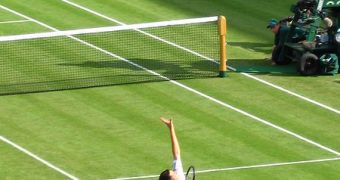Everybody knows that sports should be incorporated into one's leisure time as much as possible, for obvious reasons – stress elimination, muscular work out, helping the circulatory system and so on. But very few people know that, if performed improperly, amateur sports can cause severe and permanent damage to the human body, which can even lead to paralysis or similar afflictions.
The body muscles, bones and tendons are especially vulnerable to sudden and unnatural movements, such as when hitting a ball while jumping with your back arched while playing tennis. The human organism doesn't react well to this kind of pressure and, if it isn't stretched beforehand, it can even lead to muscles breaking or going into "fever." The same applies to all sports involving unnatural, repeated movements.
Bowling was also under intense scrutiny, as it is an asymmetric sport, meaning that the balls are directed at their targets using a single hand and a leaning motion, either on the left or on the right side, depending on what hand the player regularly uses. Doctors at Tel Aviv University say that people playing games similar to this one should exercise the same amount of time with the other side of their body, so as to prevent damage being done to muscles or ligaments during continuous effort.
Naturally, people should always stretch and warm up before starting any kind of game involving serious and repeated muscular activity. Factors such as stress, weather, the environment and the company should also be accounted, as they also favor the appearance or the rejection of symptoms relating to the negative effects that sports may have on their bodies.
"There is really a long list of things people should integrate into their mindset when playing amateur sports. It's important that the new activity integrates well into one's everyday life," concludes Dr. Navah Ratzon, the director of Tel Aviv University's Occupational Therapy Department.

 14 DAY TRIAL //
14 DAY TRIAL //